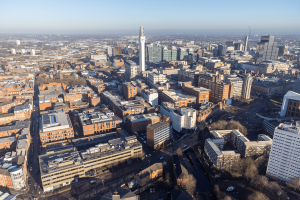Key points at-a-glance

As was already expected, the Chancellor Jeremy Hunt confirmed that from April 6, the Government will cut employee national insurance by another 2p from 10% to 8%.
This will mean an additional £450 a year for the average employee.
Also confirmed in Jeremy Hunt’s Budget speech today:
Inflation is down from a high of 11% to 4%. The Office for Budget Responsibility (OBR) forecasts it will fall below 2% in a few months time.
The OBR expects the UK’s economy to grow by 0.8% this year and 1.9% next year. In 2027, the OBR reckons the economy will grow by 1.8% compared to November’s prediction of 2%. By 2028, its rate of growth will nudge lower to 1.7%.
Alcohol duty was due to rise by 3%. But Hunt said the Government would extend the freeze on alcohol duty rises until February 2025.
As well as freezing fuel duty, the Chancellor said he is keeping the “temporary” 5p cut in this duty, meaning it will stay at 53p per litre. He said this would save the average car driver £50 next year.
To help Britain’s poorest families who take out loans to make ends meet, the repayment period for new loans will be extended from 12 months to 24 months. Until now, getting a debt relief order has involved paying a £90 charge. This charge will be abolished.
Also, the Government’s temporary Household Support Fund was due to finish this month. Instead, it will continue at current levels for another six months.
The Government withdraws Child Benefit when one parent earns more than £50,000. This assessment method will change to a household based system from 2026. And from this April the current high income child benefit charge threshold will be hiked from £50,000 to £60,000.
Small businesses will be supported with £200m to extend the Recovery Loan Scheme. And the VAT registration threshold for small businesses will increase from £85,000 to £90,000.
The Government will abolish its current system for so-called “Non Doms” – people resident in the UK but not domiciled here for tax purposes.
From April 2025, new arrivals to UK won’t have to pay tax from foreign incomes and gains for first four years. But after four years, they will need to pay the same tax as other UK residents. The Chancellor said abolishing the current Non Dom status will raise £2.7bn a year.
Tax breaks for owners of holiday let properties will be scrapped, while stamp duty relief for purchasers of multiple homes will also be abolished.
The “Windfall” tax on the profits of energy firms, which had been due to finish in March 2028, has been extended until 2029.
Finally, another £45m has been announced for the country’s life sciences sector. It includes £3m to support research into fighting cancer.









